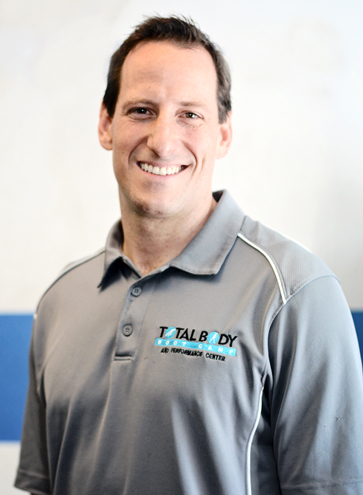This is the third and final installment of fitness financial expert Billy Hofacker‘s Coach and Grow Rich series on TonyGentilcore.com. However, unlike most trilogies (ahem The Matrix Reloaded & Revolutions) this doesn’t suck.
Financial literacy is a topic that’s not emphasized (much less taught) to fitness professionals. What’s your plan for retirement? Do you have short or long-term disability? How about a 401k? SEP IRA? How do you handle debt?
The gist is: If you have a better handle on your rolodex of Russian weight training manuals or keto recipes than you do your budget, you may want to consider readjusting your priorities.
Here’s the first two installments in case you missed them:
Coach and Grow Rich: A Simple Plan for Debt Destruction
I hope you enjoy the third.

Coach and Grow Rich: Building Wealth
Just like our clients need to learn proper squatting technique before we throw a heavy bar on their back, we need to have some foundational principles in place for building wealth.
Before we dive into part 3, here’s a quick re-cap of the first two installments.
Part 1 of Coach and Grow Rich was all about developing a money mindset. Since we’ll never outperform our self image, it’s crucial to pay attention to what we’re thinking about. Most people wind up where they expect financially, which isn’t far. By improving your mindset, you can set and achieve greater goals than you thought were possible.
Part 2 dealt with a sometimes uncomfortable topic, debt.
It’s an area I know all too well as my wife and I scraped our way out of a massive amount (more than 100K) of debt 10 years ago. I know firsthand how debt can cripple the future. I’m on a mission to help fit pros destroy debt so they can live the life they’re destined for.
The topic for this final post in the series is wealth building.
Accumulating wealth can sound like a scary thing. I know I’ve had to shift my mindset from one of scarcity to one of abundance. Just over a decade ago I wasn’t sure if we’d be able to keep our house and now I have a grandeur vision.
Hopefully this post will help it seem a little less daunting for you. If a guy like me can get to the other side, with some hard work and discipline, you can too!
I hope you’re convinced of the importance of taking your finances seriously.
If so, here are the 7 habits of highly effective finances (and wealth building).
1. Do a Spending Plan
Think of your spending plan like your training program.
You create your plan before the month starts with your end goal in mind. It then serves as a guide for you to follow. We never follow it perfectly but we do much better than if we had no plan at all.
You can get started with a spending plan HERE.
2. Live Below Your Means
One of my favorite personal finance books is The Millionaire Next Door by Thomas Stanley. While income level can be a big lever when it comes to building wealth, it’s not true that a high income is needed to get ahead financially.
Additionally, high consumption isn’t correlated with high net worth.
The next time you’re at a stoplight, you may see a brand new Mercedes on one side and a three year old Toyota Corolla on the other. While there’s a chance the person driving the Mercedes is wealthy, there is a greater chance the owner of the Toyota is.
You may be surprised to find out that even among people who make 250K or more, only 39% drive luxury cars. It’s also not surprising that 8% of people who earn less than 100K drive luxury models. That’s keeping up with the Jones’ at its finest!
3. Stay Out of Debt
One of the most common traits of millionaires is they get and stay out of consumer debt. Even with a higher income, if a large percentage of it is going towards debt, the lost opportunity to build wealth is tremendous.
4. Save Your Pennies
Another trait of financially successful people is that they’re organized and prepared. They know that life happens and aren’t caught off guard when the water heater breaks, they have a flat tire, or when it’s December 25th.
They save a little each month and build up an unexpected event or sinking fund so when things happen, stress is minimized and they can keep moving in the right direction.
5. Invest
Money sitting in the bank can have its purpose (as mentioned in the point above) but keep in mind that over time that money will be worth less.
This is due to inflation, the decline of purchasing power over time.
One of the key principles of investing is that the higher the risk the higher the potential return. For example, you can invest in individual stocks or cryptocurrency. You may get lucky and choose the right one, like a guy I know of who invested in Apple at 9 years old and became a multimillionaire by age 13.
However, there is a much greater chance you will lose your money since there are so many unknowns. For this reason, most financially successful people have most of their investments in assets that have greater stability like mutual funds, index funds (a close cousin of mutual funds), and real estate. You have to determine how much risk you’re willing to take based on your situation (e.g. age, goals, etc.).
6. Get Money Smart
Some people say to stick your money in an investment, let it grow, and don’t worry about it. Or, hire a financial planner and let them handle it so you can focus on what you do best.
I agree and disagree with both of these strategies.
The main thing for me is that nobody is going to watch your money like you do.
Nobody.
I don’t believe you should take your finger completely off the pulse. You shouldn’t do that with your personal money or the money flowing through your business. I’m not saying you need to check your net worth three times a day, but spending a few hours a month on things like organizing your finances, thinking through different purchases, setting goals, etc. can go a long way.
Life is not all about money but when this part of things is organized the rest of life will work better.
7. Be Generous
Counter to what many think, the wealthiest people are the most generous.
And you don’t have to be wealthy to start giving.
Did the wealthy people become generous by getting rich? Or did being generous make them rich? Even with very little, you can cultivate a generous spirit. It might be with a few dollars, a higher tip, or even a compliment.
Being generous can become addictive. It feels so good to give that you want to earn more just to give more. It becomes a positive cycle of doing good, earning more, and creating a greater impact.
As That’s That
As you can see, building wealth doesn’t have to be complicated.
It can be rather simple.
It’s not easy.
It’ll take years of hard work, discipline, and courage. It’s not all that different from setting a goal in any important area like fitness or relational. I challenge you to do all or most of the seven things mentioned here for the next 30 days. You’ll see that you can win with money and hopefully be on your path to achieving financial freedom!
About the Author
Many fitness professionals get stuck in the day to day and have little to show for their hard work. Billy Hofacker helps them get on a plan to achieve financial freedom. You can learn more by listening to the Your Fitness Money Coach podcast or visiting www.yourfitnessmoneycoach.com.




